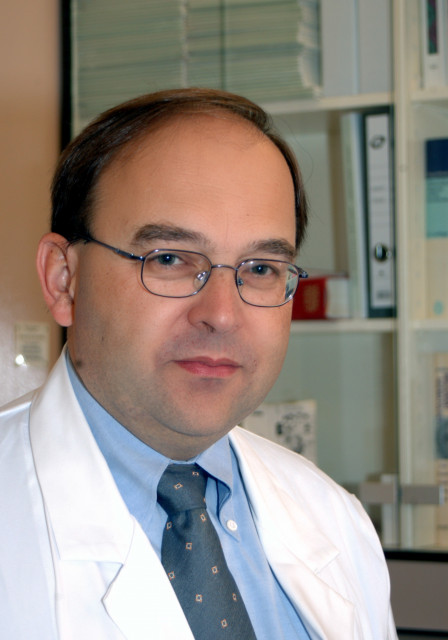Blood Cancer: AOP Health Announces New Findings in Patients With Polycythemia Vera to Be Presented at the American Society of Hematology (ASH) 65th Annual Meeting
The first author of the abstract, Professor Heinz Gisslinger from the Medical University of Vienna/Austria, and his research team conducted the present analysis in the cohort of low-risk PV patients from the large trial PROUD-PV and its extension CONTINUATION-PV. The goal was to examine the impact of various baseline characteristics such as body mass index as well as individually optimized dose levels of ropeginterferon alfa-2b on complete hematologic response (CHR), the state when blood cell counts have returned to normal, at 12, 24, and 72 months.[1]
“The results of this analysis expand the depth of data and add the clinically relevant and important evidence which can support health care professionals in their treatment decisions”, Gisslinger concludes.
[1] Gisslinger H et al. Individualized dosing of ropeginterferon alfa-2b ensures optimal response in patients with low-risk polycythemia vera (PV). ASH 2023, Abstract #4563 (https://ash.confex.com/ash/2023/webprogram/Paper173499.html)
About Polycythaemia Vera
Polycythaemia Vera (PV) is a rare cancer of the blood-building stem cells in the bone marrow resulting in a chronic increase of red blood cells, white blood cells and platelets. This condition increases the risk for circulatory disorders such as thrombosis and embolism, its symptoms lead to a reduced quality of life and on the long run may progress to myelofibrosis or transform to leukemia. While the molecular mechanism underlying PV is still subject of intense research, current results point to blood-building stem cells in the bone marrow with a set of acquired mutations, the most important being a mutant form of JAK2 that make up the malignant clone.
Important PV treatment goals are to achieve healthy blood counts (hematocrit below 45%), improve quality of life and to slow or delay the progression of disease.
About AOP Health
The AOP Health Group incorporates several companies including AOP Orphan Pharmaceuticals GmbH with its seat in Vienna, Austria (“AOP Health”). The AOP Health Group is the European pioneer for integrated therapies for rare diseases and in critical care. Over the past 25 years, the Group has become an established provider of integrated therapy solutions operating from its headquarters in Vienna, its subsidiaries and representative offices throughout Europe and the Middle East, as well as through partners worldwide. This development has been made possible by a continually high level of investment in research and development on the one hand and a highly consistent and pragmatic orientation towards the needs of all its stakeholders on the other - especially the patients and their families as well as also the healthcare professionals treating them.
View source version on businesswire.com: https://www.businesswire.com/news/home/20231207901630/en/
Website: https://www.aoporphan.com/
Contact
AOP Orphan Pharmaceuticals GmbH
Member of the AOP Health Group
Isolde Fally, DI
+43-676-500 4048
Isolde.Fally@aop-health.com
This news is a press release provided by AOP Orphan Pharmaceuticals AG.




